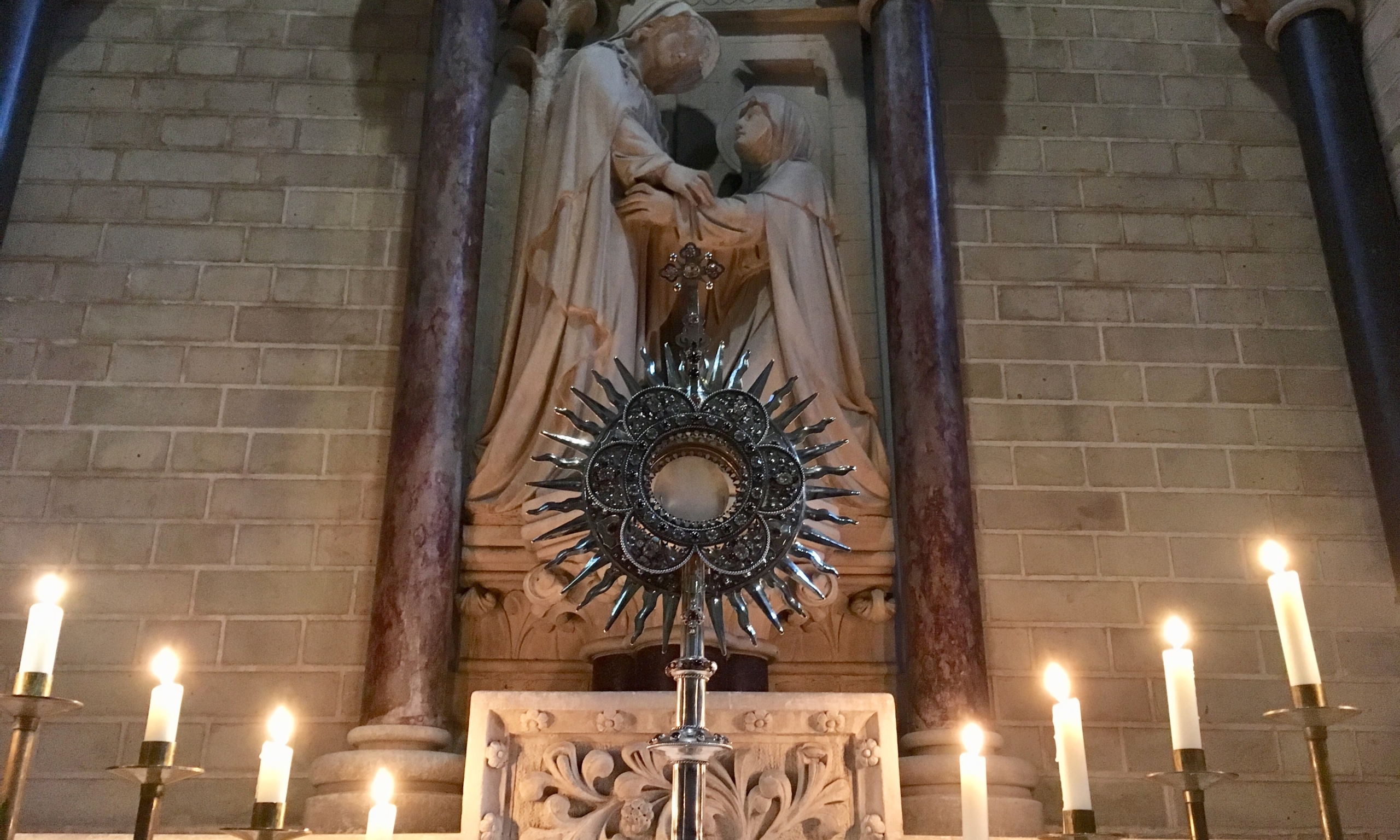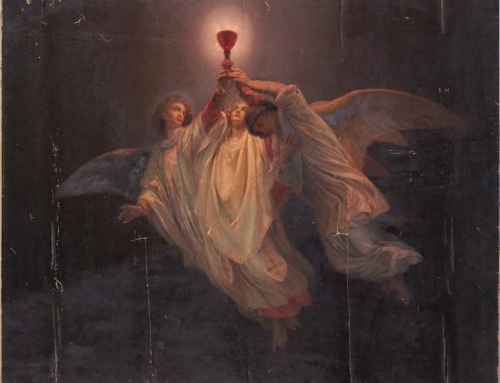Why is adoration of the Blessed Sacrament so hard sometimes? If the Eucharist is Jesus, how do I get distracted? Why doesn’t it always feel like a personal conversation?
Let’s clear something up first: you know it’s Jesus. There’s no doubt. Remember what you do when you come before the Blessed Sacrament exposed in the monstrance. You bend the knee in worship and prepare your heart to speak with the Lord. You don’t make a qualified statement in your mind: OK, if this isn’t Jesus, then I don’t mean anything by this. That would be a nightmare if you did that every time. But maybe it’s just bre— You stop yourself. This is my Body. Exactly. There is no doubt in faith. Faith is certain because by it we trust the one speaking—the Son of God who is eternally with the Father, through whom all things were made, and who assumed human flesh for our salvation. Faith listens to him. Faith doesn’t doubt.
You may still be wondering, though: Jesus is here, Body, Blood, soul, and divinity, but why doesn’t it feel like a conversation with a person who is really present here? You’ve come to the heart of it. Our Friend in the Blessed Sacrament is truly present, and yet he is under a veiled presence. Faith does not deal in degrees of doubt. Faith deals in degrees of obscurity. We can know that something is the case, but we can lack the wherewithal to know anything further about it. This is not doubt. It’s simply a void of understanding that seeks to be filled, a sight to be seen clearly.
You see, your very question—Why doesn’t Jesus talk to me as if he were a person?—is already his speaking to you. In your question, you sense the obscurity of his presence, but what’s strikingly implicit in your question is your yearning for a deeper intimacy with him. You want to hear his voice. You want to see his face.
Jesus put that ardent desire into your heart at that very moment. He wants you for himself, and he wants you to want him with the reckless abandon of love.
Our weak desires seek to stop at a relationship with Jesus as we would have a relationship with any other person, a relationship that we can pick up or put down as needed. Jesus desires much more—he desires union with us. We aren’t meant to sit forever before his veiled presence in the Eucharist. And so he puts into our hearts a desire for him that will not cease until we see him face-to-face, beyond the veil, light streaming from his face.
Without this yearning in our hearts, our lives would be stagnant, motionless. We would go nowhere. But when we go to adoration, Jesus stirs up our hearts, he sets them aflame with a burning desire for him. He sets us on a course for union with him.
✠
Image: Photo by Fr. Lawrence Lew, O.P. (used with permission)







